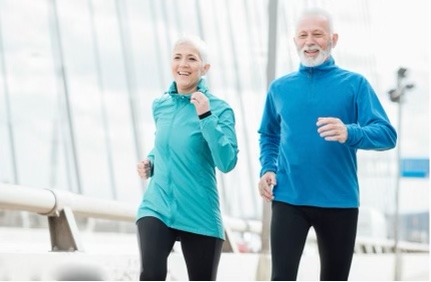One of the main benefits of regular exercise for older adults is to better prevent and manage the risk of fall. But how exactly does this work?
- Improved Muscle Strength: Regular exercise helps build and maintain muscle strength, which is essential for maintaining balance and stability. Strengthening the muscles in the legs, core, and hips can increase stability and reduce the risk of falling.
- Enhanced Balance and Coordination: Just like muscle strength and cardiovascular fitness, balance and coordination are things that improve with practice! Exercise programs that include both static and dynamic balance challenges can improve balance and coordination. These exercises challenge the body’s ability to maintain equilibrium, helping individuals develop better control over their movements and reduce the likelihood of falls.
- Resilient joints!: Exercises that focus on mobility help to keep our joints healthy and resilient. Improved mobility allows the body to react more effectively to unexpected situations, potentially preventing a fall if they encounter a misstep or stumble.
- Better Bone Density: Weight-bearing exercises, such as jogging, or resistance training, help improve bone density and strength. Stronger bones are more resistant to fractures, so if a fall does occur, the risk of serious injury is reduced.
- Enhanced Reaction Time: Regular physical activity can help improve reaction time and reflexes. This improvement allows individuals to react more quickly to potential hazards or loss of balance, enabling them to correct their posture and prevent a fall. Specific power exercises help build and maintain fast-twitch muscle fibres which are responsible for speedy and reactive movement!
- Increased Confidence: One of the biggest pre-cursors for falls is fear! If we’re afraid of falling we’re much more likely to shuffle, take smaller steps and hesitate – which then leads to a self-fulfilling prophecy. Engaging in regular exercise and maintaining physical fitness can enhance self-confidence and promote a sense of well-being. Feeling more confident in our physical abilities can translate into better balance and a reduced risk of falling.
It is important to note that while exercise is an effective preventive measure, it is advisable to consult with a healthcare professional or a qualified exercise specialist before starting any exercise program, especially for individuals with specific health conditions or physical limitations.

